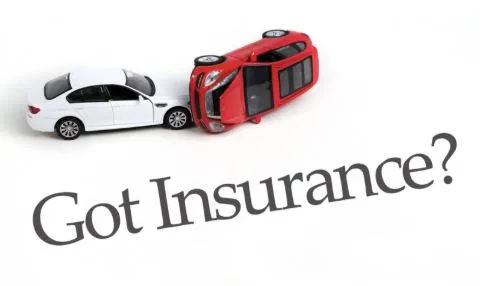The Premium Paradox: Cracking the Code for the Best Affordable Car Insurance
The Road to Savings Starts Here
The price of car insurance is a significant factor in every driver’s budget. It’s a non-negotiable expense that can vary widely depending on a multitude of factors, making the search for the best affordable car insurance feel like a daunting task. However, by understanding the market and knowing where to look, you can navigate the complexities of auto insurance and secure a policy that provides excellent protection without breaking the bank. This guide is your roadmap to finding the most cost-effective coverage, empowering you to make informed decisions that will positively impact your wallet.
Understanding the Factors that Drive Your Rates
Before you can effectively lower your car insurance premiums, you need to understand what causes them to be high in the first place. Insurance companies use a complex algorithm to assess risk, and your premium is a reflection of that risk assessment. By knowing which variables are at play, you can take steps to improve your profile and become a more attractive, and therefore less expensive, customer.
- Your Driving Record: This is arguably the most significant factor. A clean driving record with no accidents or moving violations will almost always result in lower premiums. Conversely, a history of speeding tickets, at-fault accidents, or a DUI will significantly increase your rates.
- Location, Location, Location: Where you live and even where you park your car can have a dramatic impact. Urban areas with higher rates of theft, vandalism, and accidents typically have higher premiums than suburban or rural regions.
- Age and Experience: Younger, less experienced drivers, particularly those under 25, statistically have a higher likelihood of being in an accident, leading to higher rates. As you get older and gain more experience, your premiums will generally decrease, though they may rise again after you reach a certain age, typically in your 70s.
- The Vehicle You Drive: The make, model, and year of your car matter. Expensive cars, sports cars, and vehicles with high repair costs are more costly to insure. Conversely, vehicles with strong safety ratings and a lower chance of being stolen tend to have lower premiums.
- Credit History: In many states, insurance companies use a credit-based insurance score to help determine rates. Studies have shown a correlation between a person’s credit score and their likelihood of filing a claim. A good credit score can often lead to a lower premium.
- Coverage and Deductibles: The amount and type of coverage you select, as well as your deductible, directly impact your premium. Opting for a higher deductible, the amount you pay out of pocket before your insurance kicks in, will lower your monthly premium. However, it’s crucial to choose a deductible you can realistically afford in the event of a claim.
The Power of Comparison Shopping
This is the single most effective strategy for finding the best affordable car insurance. No two insurance companies are exactly alike, and each has its own formula for calculating risk and setting prices. A rate that is sky-high with one provider might be surprisingly low with another.
- Online Comparison Tools: Numerous websites allow you to enter your information once and receive multiple quotes from different providers. This is a quick and efficient way to get a broad overview of the market and see who offers the most competitive rates for your specific profile.
- Direct Quotes: Don’t hesitate to get quotes directly from individual insurance companies. Sometimes, a company that doesn’t appear on a comparison site might offer an incredible deal.
- Independent Agents: An independent insurance agent works with multiple carriers and can shop around for you. They can be an invaluable resource, providing expert advice and helping you navigate complex policy options while searching for the best price.
The key to comparison shopping is to compare “apples to apples.” Make sure you are getting quotes for the exact same coverage limits, deductibles, and policy options to ensure a fair comparison. A lower-priced policy isn’t a good deal if it leaves you underinsured in the event of an accident.
Leveraging Discounts: A Smart Way to Save
Discounts are one of the most underutilized tools for lowering car insurance costs. Most insurance companies offer a wide variety of discounts, and a savvy consumer can often stack several of them to achieve significant savings. When you are getting quotes, be sure to ask about every possible discount.
- Multi-Policy Discount: Bundling your car insurance with other policies, such as homeowners or renters insurance, is a classic way to save.
- Safe Driver Discount: Many companies offer discounts for drivers who maintain a clean record for a specified period (e.g., three or five years).
- Good Student Discount: High school or college students with a certain GPA can often qualify for a discount.
- Low-Mileage Discount: If you don’t drive a lot, some companies will offer a discount. This is becoming increasingly popular with the rise of telematics programs that track your mileage.
- Vehicle Safety Features: Cars with certain safety features like anti-lock brakes, airbags, and anti-theft devices are often eligible for discounts.
- Defensive Driving Course Discount: Completing an approved defensive driving course can sometimes lead to a discount, as it demonstrates a commitment to safe driving.
- Payment and Billing Discounts: You might get a discount for paying your premium in full, signing up for autopay, or receiving paperless billing.
Adjusting Your Coverage to Lower Your Premium
Once you have a better idea of what coverage you need, you can explore ways to adjust your policy to make it more affordable. This is a delicate balance, as you don’t want to sacrifice essential protection for a lower price.
- Re-evaluate Comprehensive and Collision Coverage: If you have an older car that’s paid off, the cost of comprehensive and collision coverage might be more than the car is worth. In this case, it might be more economical to drop these coverages and only carry the state-mandated liability insurance.
- Increase Your Deductible: As mentioned earlier, a higher deductible will lower your premium. If you have a solid emergency fund, increasing your deductible from $500 to $1,000 or even $2,000 could lead to a noticeable decrease in your monthly bill.
- Review Your Liability Limits: While it’s important to have adequate liability coverage, you should review your limits to ensure they align with your financial situation. However, it is generally not a good idea to skimp on liability insurance, as an at-fault accident could be financially devastating.
- Consider Usage-Based Insurance: Many companies now offer programs that track your driving habits, such as speed and braking, via an app or a device you plug into your car. If you are a safe driver, this can lead to substantial discounts.
Conclusion
Finding the best affordable car insurance is a proactive process that requires research and a willingness to shop around. By understanding the key factors that influence your rates, actively seeking out discounts, and being mindful of your coverage choices, you can find a policy that fits your budget without compromising on the protection you need. Remember, your rates aren’t static; they can change over time based on your driving record, credit history, and the market itself. Regularly reviewing and comparing your policy is a smart financial habit that can lead to significant long-term savings. Don’t settle for the first quote you receive—empower yourself with knowledge and take the wheel in your search for the perfect policy.
FAQ’s
Q: How often should I shop for car insurance?
A: It’s a good idea to shop for car insurance at least once a year, or whenever you experience a major life event, such as buying a new car, getting married, or moving to a new location. These changes can significantly impact your rates, and a new quote could lead to substantial savings.
Q: Is it better to get a higher deductible to lower my premium?
A: A higher deductible will almost always result in a lower premium. However, you should only choose a deductible that you can comfortably pay out-of-pocket in the event of an accident. A higher deductible is a form of self-insurance, so you need to be prepared to cover that amount if you need to file a claim.
Q: Do I need to get the cheapest possible policy?
A: The cheapest policy isn’t always the best. The goal is to find the best affordable car insurance, which means a policy that provides the right amount of coverage for your needs at a price you can afford. Be sure to understand your policy’s limits and exclusions before making a decision. Skimping on coverage could leave you financially vulnerable in a serious accident.
Q: Can my credit score really affect my car insurance rates?
A: Yes. In most states, insurance companies use a credit-based insurance score as a factor in determining your premium. Data suggests that individuals with higher credit scores are less likely to file claims, and as a result, they are often offered lower rates. Improving your credit score can, therefore, be an effective way to lower your insurance costs over time.
Q: Will a speeding ticket cause my rates to go up?
A: A speeding ticket is a moving violation that will likely cause your rates to increase, though the amount of the increase can vary by company and the severity of the violation. A single minor ticket might not have a huge impact, but multiple tickets or a serious violation like a DUI will almost certainly result in a significant premium hike.





